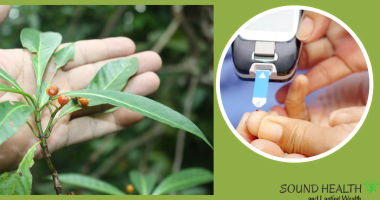A recent study published in JAMA Network Open looked at how new moms with autistic traits may face higher risks of preterm birth. Autism spectrum disorder (ASD) is a lifelong condition that affects social skills, communication, and repetitive behaviors.
Pregnant women with ASD face challenges like limited healthcare access, stress, and health issues, which can increase the risk of complications like preterm birth and babies born small for gestational age (SGA). While past studies linked ASD diagnosis to preterm births, they often grouped it with other conditions, making it unclear if it was specifically ASD causing the problem. Autistic traits exist on a spectrum, and many women might have them without an official ASD diagnosis. This study looked at how these traits, even without diagnosis, might affect birth outcomes.
About the study
Researchers looked at data from over 87,000 women who gave birth between 2011 and 2014. They used a questionnaire to measure autistic traits in the mothers during their second or third trimesters. They considered factors like the mother’s age, health, and pregnancy complications. They analyzed the risk of preterm birth and SGA babies, with preterm births further divided by gestational age.
Results
- Women with higher autistic traits had a higher risk of preterm birth, especially very preterm birth (before 32 weeks).
- This was true even after considering other factors that could affect birth outcomes.
- Women with scores in the “clinical range” for autistic traits had an even higher risk.
- Further analysis confirmed these findings and ruled out other explanations like stress or mental health conditions.
Key findings from the study include:
Women within the clinical range of the AQ-J10 (a self-reported questionnaire adapted from the 50-item AQ) had a greater risk of preterm births (RR, 1.16; 95% CI, 1.07-1.26), moderate-to-late preterm births (RR, 1.12; 95% CI, 1.03-1.22), very preterm births (RR, 1.49; 95% CI, 1.18-1.89), and a child born SGA (RR, 1.11; 95% CI, 1.04-1.19).
Women in the clinical range of the AQ-J10 tended to be younger, first-time mothers with lower education levels and a history of smoking during pregnancy.
The mean score in the study was 2.8, and only 2.7% of women scored above the clinical threshold, with a tiny fraction diagnosed with autism spectrum disorder (ASD).
Implication
This study suggests that even autistic traits without an official diagnosis might be linked to higher risks of preterm birth and SGA babies. This information is important for healthcare providers and policymakers to develop better prenatal care for mothers with autistic traits. More research is needed to understand why these traits might affect birth outcomes and how to best support these mothers.
How is maternal autistic traits measured
Maternal autistic traits are measured using the Autism Spectrum Quotient (AQ) questionnaire, specifically the short form AQ-J10, which consists of 10 items adapted from the full 50-item AQ. The questionnaire assesses mainly autistic social traits in the general population, with higher total scores indicating a higher level of autistic traits. In the Japanese population, a score of 7 is recommended as the clinical threshold, indicating a potential need for a full autism spectrum disorder (ASD) assessment. The sensitivity and specificity of the AQ-J10 have been reported, and a score above the clinical threshold may warrant further assessment for ASD. The Cronbach’s alpha for the AQ-J10 in a study was 0.52, indicating acceptable internal consistency. Study source
ALSO READ: Deep Brain Stimulation Shows Long-Term Benefits for Advanced Parkinson’s Disease










